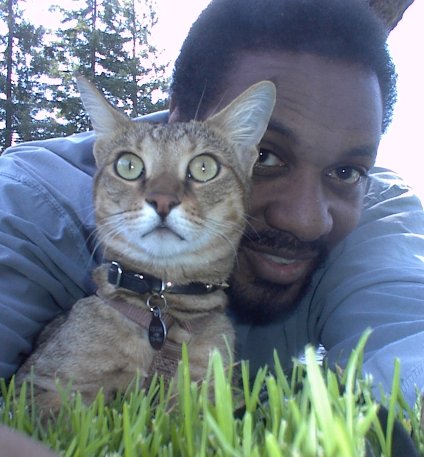
What is it about doodling that is so...relaxing? And creative? When doodling, are you tapping into the subconscious? Opening up a deep dark crevice into the creative zone?
I've always doodled. As a kid, in grade school, my assignments were generally covered with little drawings in the margins...that is until my teacher, in third grade I believe, brought it to the attention of my parents and told me to stop.
At that time, it never dawned on me that there was anything wrong with the practice. It was all part of the creative process. A little like the artistic equivalent of the "um" or the "like" in conversation. A way of filling in the gaps while another part of the brain is processing information.
I still doodle. Not nearly as much or as often, but I still do it from time to time. Especially when I'm creating. It's often done subconsciously...my pen hand just seems to have a life of it's own. And it never has anything to do with the task at hand. It's just random squiggles that morph into a face, or a person, or an object, or a pattern.
It's all about patterns...and pulling them out of the ether, I think. And for me, it definitely enhances the creative process.
Anyway, since I've been using a Tablet PC, doodling has become a part of my creative process once again...when the words stop flowing, the doodling begins...and within a short time, the words return. When I'm writing fiction I'm in a different space -- it's like I've left my body and I'm actually in the story. Except, that's not quite right either, because I'm not feeling what the characters feel exactly...I'm still creating that space, expanding the universe. But I know my pulse slows and there's little awarness of my physical form...it's kinda like I'm floating, I guess.
I need to research this. Surely there's data on that place we go when we create, when the story takes off and we're just gone. And I think, for me, when the story hits a snag and my spirit begins to return to my body, doodling helps me stay there a little longer. Keeps me in that place of expanding boundaries while I chase after the muse.
Yeah, doodling, it's important.


7 comments:
Hi, I dropped by from Sidney Williams blog after your comment on Van Helsing. I've never even seen a tablet PC, but giving that my legs hurt after I sit in the typing chair for a long while I wonder if something like the tablet PC might make sense for me me. The doodling aspect would be nice as well.
Welcome Charles -- I've read your comments on Sidney's site too -- so I already feel I know you.
One of the nicest things about the tablet pc is being able to work on it while sitting in your easy chair. Basically, they come in two styles -- slate or convertible. If you're considering your first tablet, I'd suggest a convertible. A convertible looks just like a regular laptop, except rather than two hinges, there's a single, rotating hinge in the center of the display. To switch to portrait mode, you simply twist the display 180 degrees and then close the laptop -- the screen will then be face up. Getting used to using ink takes a little while, so at first, most people constantly switch back and forth between keyboard and pen...that's part of the power of the platform...when you need speed, using the keyboard is faster. When you're creating, you'll probably be happy with the pen. I've been using a tablet pc for about 3 years and the pen has become so second nature, I use it nearly all the time. Another side benefit -- I was suffering what I believe was the onset of carpal tunnel syndrome -- every few months I'd start getting hand pains and I'd have to ease up on my keyboarding and exercise with a squeeze ball...since I've been using the tablet, the pain hasn't returned. Not once. And that, for a writer, is a major benefit.
I spend a lot of time working on the couch and in easy chairs, so as for your original question, yeah, it's cool.
There are a few powerful yet inexpensive tablets (Gateway has one and so does Toshiba), that have nice big 14.1-inch wide screen displays. As nice as the extra real estate is, you do need to consider how you're going to use it. If you plan to hold it in your lap a lot, or carry it from place to place, consider paying the extra money for a more mobile device. When the tablet pc was launched about 4 years ago, first generation tablets were ALL small. Prices were very high and sales were relatively low, so over time they started creating cheaper (i.e., larger and heavier) form factors. Large displays do have their benifits, but portability isn't one of them. Anyway, hope this helps, Charles.
Genial brief and this fill someone in on helped me alot in my college assignement. Say thank you you seeking your information.
[url=http://www.ile-maurice.com/forum/members/wetter-vorhersage.html][b]wetter aktuell[/b][/url]
[url=http://www.ile-maurice.com/forum/members/wetter-vorhersage.html][b]die wetter[b][/url]
Wettervorhersage is a set of all the phenomena occurring in a given atmosphere at a given time. Most weather phenomena occur in the troposphere, just below the stratosphere. weather for refers, generally, to day-to-day temperature and precipitation activity, whereas climate is the term for the average atmospheric conditions over longer periods of time. When used without qualification, "weather" is understood to be the weather of Earth.
Hi.
A banks is a financial institution that accepts deposits and channels those deposits into lending activities. Bank primarily provide financial services to customers while enriching investors. Government restrictions on financial activities by bank vary over time and location. Bank are important players in financial markets and offer services such as investment funds and loans. In some countries such as Germany, bank have historically owned major stakes in industrial corporations while in other countries such as the United States bank are prohibited from owning non-financial companies. In Japan, banks are usually the nexus of a cross-share holding entity known as the keiretsu. In France, bancassurance is prevalent, as most banks offer insurance services (and now real estate services) to their clients.
The level of government regulation of the banking industry varies widely, with countries such as Iceland, having relatively light regulation of the banking sector, and countries such as China having a wide variety of regulations but no systematic process that can be followed typical of a communist system.[url=http://projectcontrol.v3host.nl]CLICK HERE[/url]
nice read. I would love to follow you on twitter.
Post a Comment